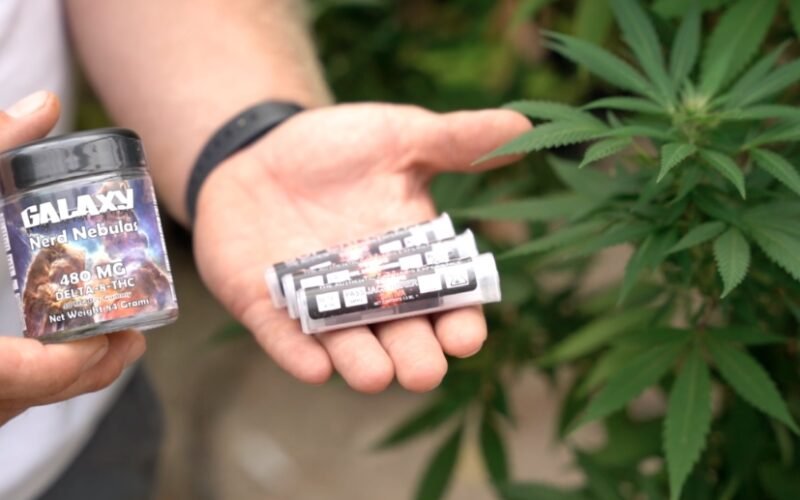In a bold move to safeguard consumers and ensure fair market practices, the Cannabis Business Association of Illinois has called for a statewide ban on Delta-8 THC products. This controversial decision comes as the substance, often found in corner stores and smoke shops, gains popularity for its psychoactive effects.
The Rise of Delta-8 THC
Delta-8 THC has emerged as a legal alternative to marijuana, derived from hemp and occupying a gray area in terms of regulation. Its accessibility and affordability have made it a go-to choice for many, but this lack of oversight has raised alarms within the established cannabis industry. The substance’s proliferation has led to concerns about consumer safety, as reports of adverse reactions to unregulated products surface.
The Cannabis Business Association of Illinois argues that Delta-8 THC products are not only a health risk but also pose a threat to the integrity of the state’s regulated cannabis market. By avoiding the stringent safety checks and taxes imposed on legal cannabis businesses, Delta-8 vendors gain an unfair advantage and potentially endanger users.

The Call for Regulation
The debate over Delta-8 THC is not just about legality; it’s about responsibility. Illinois’ cannabis industry leaders are not advocating for a blanket prohibition but rather for a regulatory framework that ensures safety and fairness. They emphasize the need for Delta-8 THC products to undergo the same rigorous testing and compliance standards as other cannabis products.
This call for regulation is a plea for consumer protection and industry stability. It reflects a desire to maintain the hard-earned trust between legal cannabis businesses and their customers, ensuring that all products on the market are safe, reliable, and responsibly sold.
The Impact on the Community
The potential ban on Delta-8 THC has far-reaching implications. For consumers, it promises greater safety and assurance in the products they choose. For legal cannabis businesses, it means a level playing field where competition is based on quality and compliance, not on circumventing regulations.
The community’s response to this proposed ban will shape the future of cannabis in Illinois. It’s a critical moment that calls for informed decision-making and a commitment to upholding standards that benefit everyone involved.




